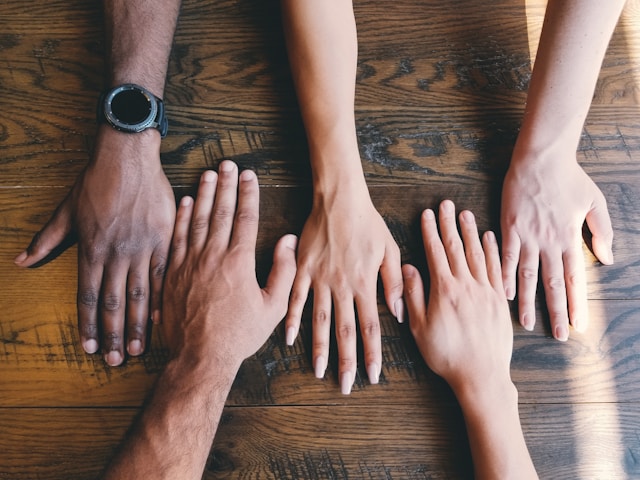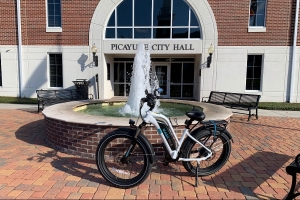Civilizations don't collapse because of one dramatic event. They erode when everyday trust and cooperation wear thin. History shows us that the strength of a society isn't measured by monuments or armies. It's measured by how it treats those at the margins.
A community that excludes people with disabilities, minorities, or the vulnerable undermines itself, because exclusion is contagious. Once normalized, it spreads silently until whole groups are written out of the collective story.
That's why inclusion is more than kindness. It's a survival strategy for communities that want to remain vibrant, cohesive, and future-oriented. Let's look closer at what inclusion really means.
Inclusion as a Measure of Progress
We often measure progress in terms of technology, GDP, or scientific discovery. But history tells us that the deeper measure is who gets to share in those benefits. Ancient Rome was brilliant in engineering, but crumbled under social fragmentation. Societies that expand rights and dignity endure longer because more people buy into the collective project.
Here's something worth noting, as highlighted by the National Library of Medicine. In much of the Global North, “social inclusion” has become the dominant ideal in services for people with intellectual disabilities. In theory, this points toward full equality. In practice, however, the term often narrows down to “community participation”. It's a softer version of inclusion that stops short of guaranteeing equal rights.
This narrower view is so ingrained it's rarely questioned. The assumption is that such a framework is morally good, but it risks becoming a checkbox exercise rather than a transformative force. Real inclusion should mean dismantling barriers to full participation, not merely inviting people to observe from the sidelines.
Everyday Spaces Shape Our Values
We tend to imagine discrimination as something systemic, hidden in laws or corporate structures. But often it surfaces in the most ordinary places: classrooms, sidewalks, or restaurants.
A striking example unfolded recently in Murfreesboro, Tennessee, when families of children in wheelchairs were denied seating at a local burger restaurant. Staff told them they posed a fire hazard, despite the place being half empty and the families offering to split into smaller groups.
The U.S. Department of Justice stepped in, and the restaurant agreed to a $352,000 settlement. In situations like this, lawyers in Murfreesboro, TN can also step in to defend your constitutional rights.
Lawyers play a crucial role in holding businesses accountable, making sure discrimination doesn't go unchecked. According to Hudson, Reed & Christiansen, PLLC, they safeguard the principle that every citizen deserves equal treatment under the law. Still, what people expect first is inclusion because when that's denied, trust in the community begins to erode.
Moments like this aren't just about one meal or one restaurant. They expose the hidden boundaries of belonging.
The Cost of Exclusion
Exclusion doesn't only harm those being excluded; it corrodes the broader community. When some citizens are denied equal participation, others begin to question whether fairness truly exists at all. This weakens trust in institutions and in one another. In economic terms, exclusion also wastes potential.
Families denied equal service are less likely to return, to contribute, or to feel connected. Over time, communities that normalize exclusion pay with declining loyalty, reduced innovation, and fractured social bonds.
And this isn't an isolated issue in the U.S. The World Justice Project has tracked worrying trends worldwide. Discrimination has worsened in 70% of countries between 2021 and 2022. Moreover, since 2015, three-fourths of the countries studied have experienced a steady rise in discriminatory practices.
This shows that exclusion isn't just a moral failure; it's a global crisis, one that undermines the very resilience communities depend on.
When Communities Choose Inclusion
Across history, communities that embraced inclusion unlocked unexpected strength. Consider societies that extended education to girls or political systems that broadened voting rights. Each time, the initial resistance claimed it would be costly or disruptive.
Each time, the result was greater stability and creativity. Modern neuroscience even supports this: humans are wired to thrive in groups where belonging is secure. Exclusion triggers stress responses, while inclusion sparks cooperation.
Generational values amplify this point. McKinsey notes that Gen Z is shaping itself into a wave of “inclusive consumers.” Idealistic and outspoken, they expect purpose, accountability, and opportunity for diverse and underrepresented groups.
More than any previous generation, they use their buying power to reward inclusion and punish exclusion. Communities and businesses that ignore this shift risk not just moral criticism, but irrelevance.
Moving From Awareness to Action
Awareness is only the beginning. Inclusion requires action, often inconvenient and deliberate. That may mean redesigning spaces, adjusting policies, or confronting unconscious bias. The good news is that these investments pay back far more than they cost.
Communities that are inclusive attract talent, tourism, and goodwill. They reduce conflict, lawsuits, and mistrust. And perhaps most importantly, they model to younger generations that fairness is not optional; it's the default.
The Murfreesboro settlement is not just a legal footnote. It's a warning and an opportunity. A warning that exclusion is no longer tolerated, and an opportunity to rethink how everyday spaces reflect our shared values. When we see a group of kids in wheelchairs treated as outsiders, we're confronted with a choice. Accept a narrower definition of community or insist on something broader and fairer.
FAQs
How can individuals promote inclusion in their own communities?
Individuals can support inclusion by practicing empathy, challenging exclusion when they see it, and choosing businesses or organizations that prioritize accessibility. Teaching children the value of fairness, volunteering for inclusive programs, and pushing for better local policies also strengthens the cultural expectation of belonging.
How do laws like the ADA impact everyday experiences?
The Americans with Disabilities Act sets minimum standards for accessibility and equal treatment. It ensures businesses and public institutions make spaces usable for all. While the law is crucial, its true impact depends on consistent enforcement and communities embracing inclusion as a shared responsibility.
What role do lawyers play in protecting inclusion?
Lawyers ensure rights are not theoretical but enforceable. They hold businesses accountable, represent excluded individuals, and push for stronger protections. By turning injustice into legal precedent, lawyers help prevent future discrimination, reinforcing that inclusion isn't optional but a constitutional guarantee in public life.
Overall, the story of humanity is a story of expanding circles of belonging. Tribes widened into nations, nations into global networks. Each expansion was marked by tension, yet each one made us stronger.
When communities choose inclusion, whether for children in wheelchairs, immigrants, or any marginalized group, they're not only doing justice. They're securing their own future.
Because in the end, the measure of a community's strength is not how it treats the powerful, but how it welcomes the vulnerable. That is where resilience begins, and where history judges us most clearly.






